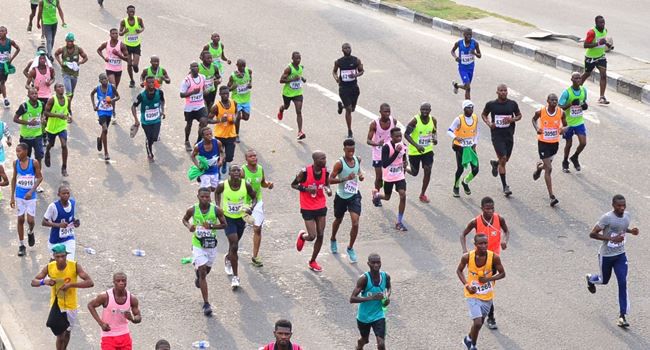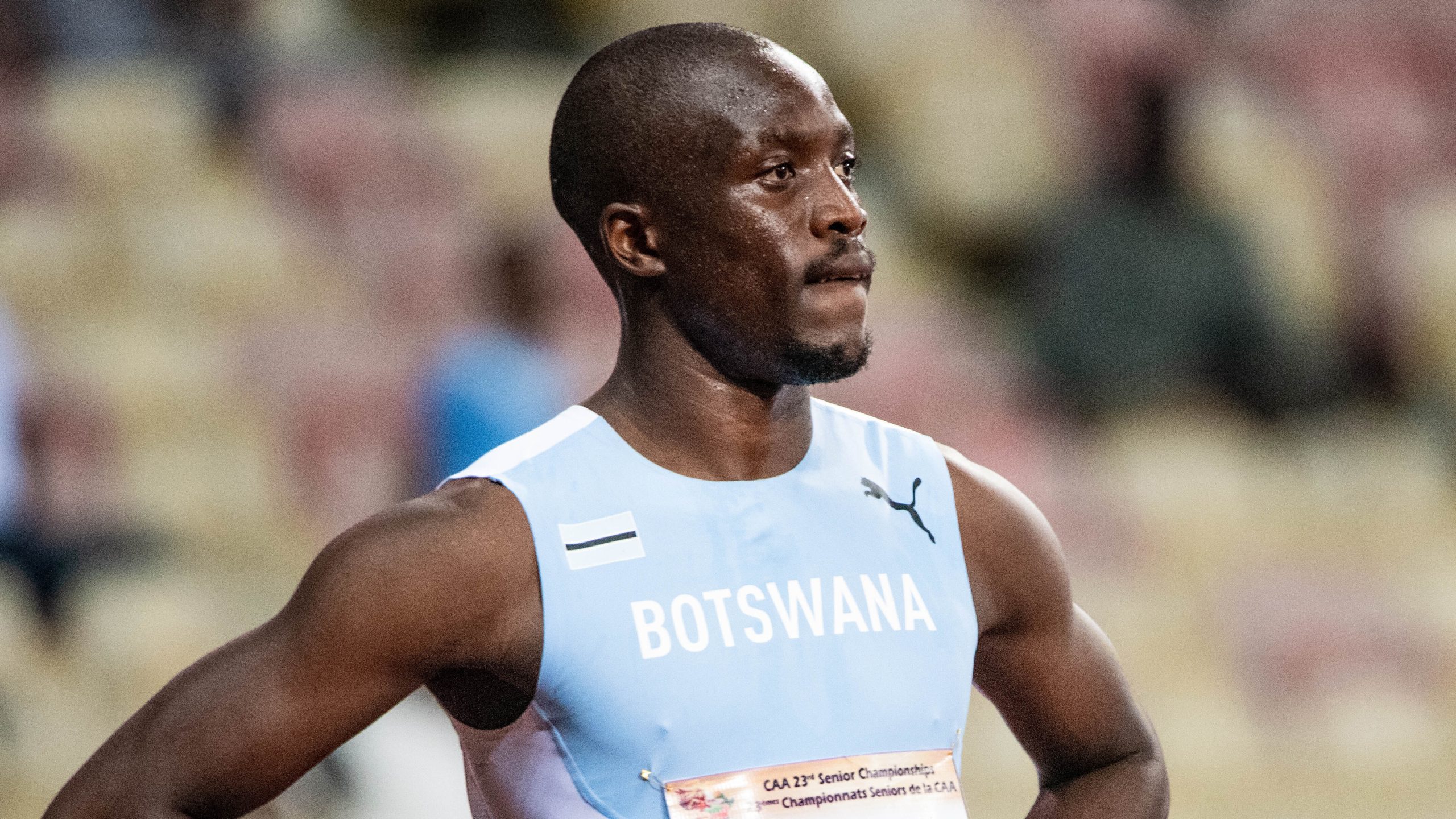
Former chairman of the Athletics Federation of Nigeria’s (AFN) Technical Committee, Rotimi Obajimi, has described as false, Sydney Olympics 4x400m gold medalist, Enefiok Udo-Obong’s account of events at the 1994 Milo Marathon.
In his book, In The Long Run, The Great Race Fiasco, Udo-Obong said the AFN unjustly denied a Nigerian, Gideon Hagack, his victory and declared a Kenyan, Benson Mariuki, as winner of the 1994 Milo Marathon.
Addressing the issues raised in the book during a zoom meeting with journalists, Obajimi said Udo-Obong’s account is not only inaccurate, but totally disregards rules governing the organisation of a road running event.
Threatening to seek redress in court, Obajimi also said the book not only maligned his character and questioned his integrity, but also members of the board of the AFN at the time and all athletics stakeholders.
Obajimi, who was the race director/referee designated with the authority to make decisions about the outcome of the race, said Udo-Obong acknowledged, but disregarded the report of accredited officials for the race, especially the (route) course marshals and one of the athletes who ran in the race, Nigeria’s marathon record holder, Abbas Mohammed, and believed the account of those not directly connected with the event of Sunday October 9, 1994.
“I am still trying to understand (Udo-Obong) Enefiok’s motive for writing the book and his lack of faith in World Athletics competition rules, which guided the organisation of the event,” Obajimi said.
The former athletes’ agent, consultant to ExxonMobil on the Mobil Track and Field Championships and an IAAF (now World Athletics) lecturer and course director, said: “I have gone through the book and couldn’t find the authority Udo-Obong relied on other than hearsays to believe Hagack was robbed of victory.
“The panel set up by the Sports Ministry did not say Hagack won the race, albeit their decision would not have mattered because it is only the AFN that organised the race that could have changed whatever result, if there was either a protest or sees that the integrity of the race is at stake.”
Explaining what happened on the race day, Obajimi said Hagack was not among the frontrunners coming to the National Stadium in Surulere, Lagos, and report of the course marshals confirmed it.
“Mohammed, who finished second in the race, also attested that Hagack was nowhere near the lead runners with less than 1000m to go. Respected journalist, Ahmed Adio, a member of the AFN media sub-committee, who reported the race for the Nigeria Television Authority (NTA), also corroborated the course marshals and Mohammed’s accounts.
“These were accredited officials for the race but Udo-Obong disregarded that for the account of bystanders.
“As I said, I was the race director and was in the lead vehicle during the race. The lead vehicle guides runners by driving around the course about 50-100 metres ahead of the lead runner(s).
“I didn’t see Hagack anywhere near the Kenyan, who was the lone lead runner, while Mohammed was in the group of the second lead runners and he testified at the panel that Hagack was not in their group.
“As in all races, the lead vehicle will not run across the finish line because of the digital clock mounted at the gantry. I told the driver to drive straight to the ceremonial gate where I went to alert the officials at the finish line of the impending arrival of the lone lead runner.
“You can imagine how bewildered I was when Hagack came inside the mainbowl of the National Stadium ahead of the Kenyan, who had a lead of over 500m coming into the stadium complex. I have never heard of any athlete not in the second group of the lead runners overhaul what will be a lead of over 500m at the finish. It was more like a chapter from a book of fiction.
“With the status Udo-Obong has attained in track and field, he should have known that organisers have the right to disqualify athletes who tried to circumvent the rules and that is what we did.”
Obajimi frowned on Udobong’s description of AFN officials as dishonest and wondered why he should describe Mohammed, the Nigerian record holder in the event, as fraudulent.
He wondered how Hagack, who ran two hours, 26 minutes in Accra, Ghana, just two weeks before the Milo Marathon, could be so competitive in the event in Lagos to have run two hours, 28 minutes.
“That is impossible. The body takes more than six, seven weeks to recover and that’s why athletes don’t run more than four marathons in a year, but Udo-Obong has made Hagack a superman.
“If and when an athlete feels aggrieved like he claimed Hagack was, the only option open to the athlete is to lodge a protest. Mind you, protests are time bound.
“Udo-Obong never mentioned that Hagack lodged any protest and we know he didn’t, and that killed whatever chances he had for a redress. I expect him to know this. It is a simple rule in track and field.”






